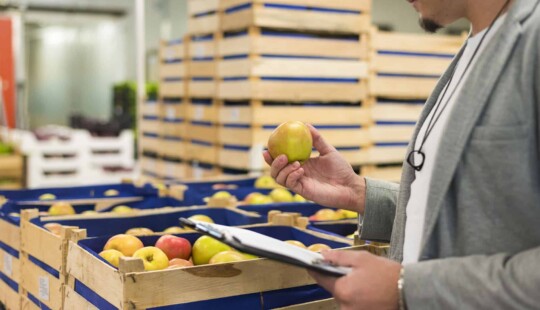For decades it has been clear that the Earth’s climate is changing and our influence on the environment is undisputed. The latest UN (IPCC) report is the most dire warning ever issued on climate change and a wake-up call for all of us to realize that we can only ensure a sustainable future by taking action.
As a frontrunner in the sustainability movement, SAP has a crucial role to play as an exemplar – such as committing to become carbon neutral by 2023 – as well as in helping businesses unlock their potential growth. This is possible through optimizing circular business models with practical and scalable SAP solutions such as SAP Product Footprint Management, which enables companies to account for greenhouse gas emissions in their end-to-end business processes. While SAP’s focus is on innovations that help customers become more sustainable, we as individuals should lead by example by taking steps that lead to a more sustainable living, such as using alternative modes of transportation or reducing single-use plastics.
Following the vision of a circular economy, businesses and individuals are advised to set the focus on repurposing and reusing materials, following a cycle of make, use, return, and reuse.
Achieving circular business models requires completely rethinking supply and value chains across industries to create end-to-end transparency. In the quest to turn waste into value, SAP developed SAP Rural Sourcing Management, a solution that can improve visibility into resources across value chains, helping companies understand, control, and manage their impact on the environment. For example, it is estimated that the fashion industry is responsible for 10% of global carbon emissions, and, according to UNFCCC, the sector’s emissions are to rise by more than 60% by 2030 if transformation towards a sustainable fashion industry fails to materialize soon.
A great use case where the SAP Rural Sourcing Management solution helps streamline the journey to a circular economy is through a sustainable network of businesses, connecting plastic waste collectors in Ghana with recycling companies, manufacturers, brands, and consumers of fashion. In Africa less than 20% of plastic waste is being recycled, while the European Union sets a target of 50% by 2025. Ghana has committed to turn this issue into an opportunity by creating a domestic recycling industry that creates jobs as well as supports a clean environment. In urban areas of countries such as Ghana, waste collecting is a means of survival. However, many urban dwellers have poor visibility into the market price of the collected materials, leaving them vulnerable to imposed pricing.
Through the implementation of SAP Rural Sourcing Management, waste collectors in Ghana can directly connect to waste aggregators to receive a fair and transparent wage. The plastic resources are then handed over to the recycling companies to transform it into reusable resources. Being transported to different factories and manufacturers, plastic can be used in the production of fashion items. Using SAP Logistics Business Network, full traceability can be achieved along the entire supply chain to help ensure expectations and standards for sustainable production and fair conditions are met.
To connect and manage the business operations steps within any fashion business, SAP supports brands and retailers that want to capture and control the value of products after sale with recommerce. The aim is to enable and connect recommerce-specific business processes that include buying back, managing, and reselling pre-owned inventory, as well as tracking key financial, customer, and sustainability performance indicators. Any fashion brand can maintain visibility and control re-commerce business to fully capture the opportunities at stake – a profitable reselling business, positive environmental impact, customer acquisition, and expansion of the customer lifetime value.
SAP technology provides solutions that can transform serious environmental challenges, such as plastic waste, into integral parts of the circular economy. It can bring people and businesses with shared values together to jointly create a more sustainable value chain, where products are used, returned, reused, and given a new purpose.
Katrin Lehmann is head of Customer Innovation and Maintenance at SAP.



